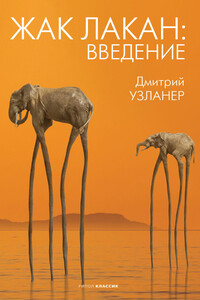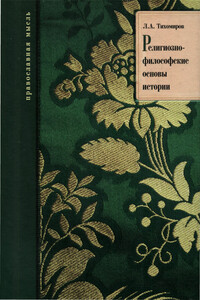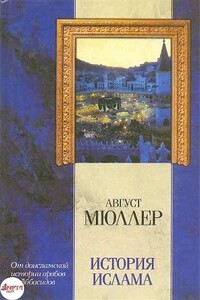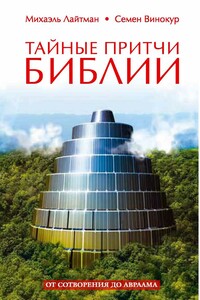Постсекулярный поворот. Как мыслить о религии в XXI веке - страница 120
Habermas J., Mendieta E. «A Postsecular World Society? On the Philosophical Significance of Postsecular Consciousness and the Multicultural World Society». An Interview with Jürgen Habermas // The Immanent Frame. 3 February 2010 [tif.ssrc.org/wp-content/uploads/2010/02/A-Postsecular-World-Society-TIF.pdf, доступ от 12.05.2019].
Habermas J., Ratzinger J. The Dialectics of Secularization. On Reason and Religion. San Francisco: Ignatius Press, 2006.
Habermas J., Ratzinger J. Vorpolitische Moralische Grundlagen eines Freiheitlichen Staates // zur debatte. 2004. 34 (1): 1–12.
Hanegraaf W. New Age Spiritualities as Secular Religion: A Historian’s Perspective // Social Compass. 1999. 46 (2): 145–160.
Harrington A. Habermas and the «Post-Secular Society» // European Journal of Social Theory. 2007. 10 (4): 543–560.
Harrison P «Religion» and the Religions in the English Enlightenment. Cambridge University Press, 1990.
Harrison P. The Book of Nature and Early Modern Science // Berkel R. van, Vanderjagt A. (eds.) The Book of Nature in Early Modern and Modern History. Peeters, 2006.
Hart D. B. Atheist Delusions: The Christian Revolution and Its Fashionable Enemies. New Haven, CT: Yale University Press, 2010.
Hashemi M. A Post-Secular Reading of Public Sociology // Social Compass. 2016. 63 (4): 461–477.
Haynes J. (ed.) Routledge Handbook of Religion and Politics. London and New York: Routledge, 2009.
Herman A., Beaumont J., Cloke P., and Walliser A. Spaces of Postsecular Engagement in Cities // Beaumont J., Cloke P. (eds.) Faith-Based Organizations and Exclusion in European Cities. Bristol: Policy Press, 2012. P. 59–80.
Holyoake G. J. English Secularism: A Confession of Belief. Chicago: The Open Court Publishing Company, 1896.
Horowitz M. C. (ed.) New Dictionary of the History of Ideas. Thomson Gale, 2005.
Horuzhy S. S. Anthropological Dimensions of the Postsecular Paradigm [http://synergia-isa.ru/wp-content/uploads/2011/05/hor_faenza_2011.pdf, доступ от 12.05.2019].
Hunter J. D. Culture Wars: The Struggle to Control the Family, Art, Education, Law, and Politics in America. Basic Press, 1991.
Janicaud D. Le Tournant theologique de la phenomenologie francaise. Combas: Ed. de l’Eclat, 1991.
Jarzyñska K. The Russian Orthodox Church as Part of the State and Society // Russian Politics and Law. 2014. 52 (3): 87–97.
Jenkins Ph. God’s Continent: Christianity, Islam, and Europe’s Religious Crisis. Oxford University Press, 2009.
Kalaïtzidis P. Orthodox Theology and the Challenges of a Post-Secular Age: Questioning the Public Relevance of the Current Orthodox Theological «Paradigm» // Fihas R. (ed.) Proceedings of the International Conference «Academic Theology in a Post-Secular Age». Lviv: Institute of Ecumenical Studies (Lviv), St. Andrew’s Biblical Theological Institute (Moscow), 2013. P. 4–26.
Karpov V. Desecularization: A Conceptual Framework // Journal of Church and State. 2010. 52 (2): 232–270.
Karpov V. The Social Dynamics of Russia’s Desecularisation: A Comparative and Theoretical Perspective // Religion, State and Society. 2013. 41 (3): 254–283.
King R. (ed.) Religion, Theory, Critique: Classic and Contemporary Approaches and Methodologies. N. Y.: Columbia University Press, 2017.
Kitcher F. Science in a Democratic Society. Prometheus Books. 2011.
Kitcher F. Science, Truth, and Democracy. Oxford University Press, 2001.
Knott K. Cutting through the Postsecular City: A Spatial Interrogation // Molendijk A., Beaumont J. and Jedan Ch. (eds.) Exploring the Postsecular. Bristol: Policy Press, 2012. P. 19–38.
Köllner T. On the Restitution of Property and the Making of «Authentic» Landscapes in Contemporary Russia // Europe-Asia Studies. 2018. 70 (7): 1083–1102.
Köllner T. Patriotism, Orthodox Religion and Education: Empirical Findings from Contemporary Russia // Religion, State & Society. 2016. 44 (4): 366–386.
Kyrlezhev A. On the Possibility or Impossibility of an Eastern Orthodox Political Theology //





